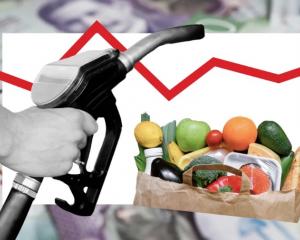Prime Minister John Key delivered lots of gloomy news yesterday but provided little inspirational thinking about how New Zealand might better itself in the near term.
Mr Key told a business audience in Wellington New Zealand's economic performance was "vitally important" and outlined the Government's six-pronged strategy, which was designed to provide an environment in which the private sector could thrive.
However, the six prongs were a rehash of National's campaign strategy and not a new approach, despite the global economy imploding since Mr Key was elected Prime Minister.
The six main policy drivers were:
• Regulatory reform.
• Investment in infrastructure.
• Better public services.
• Education and skills.
• Innovation and business assistance.
• A world-class tax system.
Mr Key said the most fundamental problem facing the New Zealand economy was poor productivity growth, despite New Zealanders being among the hardest workers in the OECD.
"We have high rates of employment compared to other developed countries and we work relatively long hours."
But New Zealand's productivity was already low compared with other developed countries and in recent years had been growing much slower than in most other nations.
A significant part of the poor productivity growth in New Zealand had been the stagnation of the tradeable sector of the economy.
That sector included agriculture, fisheries, manufacturing, tourism and forestry - the industries that made New Zealand money in the world.
"The sad fact is that the tradeable sector has effectively been in recession for the last five years."
During that period, output in the tradeable sector had shrunk by around 10%, while the non-tradeable sector of the economy - which had lower productivity - had grown by 15%.
That constituted highly unbalanced growth, Mr Key said.
New Zealand liked to think of itself as a trading nation, yet it exported less as a percentage of GDP than many other small OECD countries.
That percentage had grown only slowly in the past 30 years.
More than 90% of the country's exports came from less than 5% of exporters, and those exports were also concentrated in a few sectors.
Among the other gloomy news delivered by Mr Key was a Treasury prediction that over the next three years, the economy would be $50 billion smaller than was expected a year ago in the 2008 Budget.
Treasury also predicted that unemployment would reach a high of 8%.
United States President Barack Obama said yesterday he expected the US unemployment rate, currently at 9.5%, to rise further over the coming months.
He predicted that it could reach double digits this year.
It already is above 14% in Michigan, the historic heart of the country's car-making sector.
Mr Key said much of the Government's economic attention over the past eight months had been on managing the immediate impacts of the recession.
"We cannot magic away a deep recession; nor can we turn back the tide of rising unemployment.
"What the Government can do is take the sharpest edges off the recession."
The Government got the balance right in the Budget through maintaining all entitlements to income support and increasing spending on front-line public services, in particular health, education and justice.
Mr Key used his speech to focus on the Government's long-term economic objectives.
These were increasing New Zealand's productivity growth; maintaining high levels of employment; and reducing New Zealand's vulnerability to adverse events.
"Increasing our productivity growth basically means getting better at producing goods and services the world wants, and getting paid more for them.
"At the same time, we want to keep employment high, although this will always fluctuate along with the economic cycle."
Reducing New Zealand's vulnerability meant lessening the risk that another economic shock could severely affect the economy, he said.
New Zealand had plenty of strengths, including the potential to fill pantries and fridges, not just in Asia but throughout the world, with high-quality, efficiently farmed products.
However, the weaknesses of the New Zealand economy should not be ignored.
Labour Party leader Phil Goff told the Otago Daily Times that with 1200 New Zealanders joining the dole queue each week, Mr Key should have used the speech for some inspirational thinking.
"This is a man who has a huge team at his beck and call, the Prime Minister's department, Cabinet, a squad of researchers and speech writers, and the best that they can come up with is warmed-up leftovers from before."
By next year, New Zealand would be spending $1 billion a year on unemployment and 180,000 New Zealanders would be out of work.
There was nothing in the speech to change that situation, Mr Goff said.











